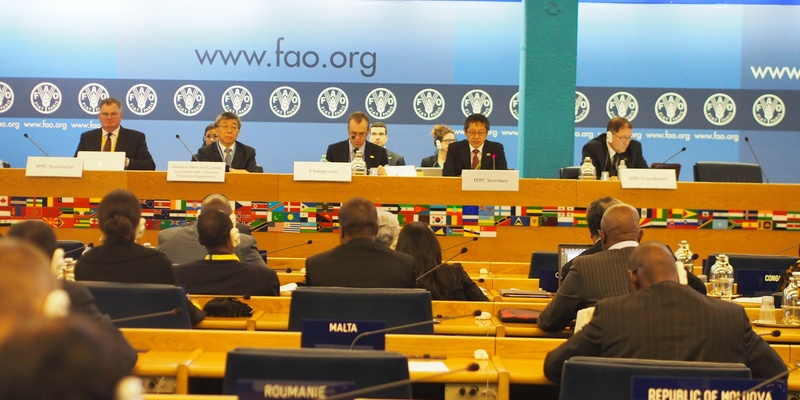IPPC Coverage of Aquatic Plants
Posted on Thu, 29 May 2014, 14:09

At the 9th Session of CPM, the Recommendation CPM-9/2014/1 covering IPPC Coverage of Aquatic Plants was adopted: https://www.ippc.int/core-activities/governance/cpm-recommendations/ippc-aquatic-plants. The International Plant Protection Convention (IPPC), having the purpose of securing common and effective action to prevent the spread and introduction of pests of plants and plant products, does not distinguish between terrestrial and aquatic plants and does not specifically refer to aquatic plants. Furthermore, as clarified by the CPM on several occasions, the IPPC deals with the protection of plants whether cultivated, managed or wild.
Aquatic plants may, as other plants, be infested by pests, provide a pathway for pests or themselves be pests to other plants.
Aquatic plants, are mentioned in several International Standards for Phytosanitary Measures (ISPMs) as plants that should be protected under the IPPC framework. CPM-1 (2006) noted the IPPC Secretariat s liaison with other international organizations to clarify the mandate of the IPPC with respect to invasive aquatic plants. The IPPC Business Plan 2007 - 2011, adopted at CPM-2 (2007), identified marine and other aquatic plants as an emerging issue to be considered, and it was stated that ISPMs should be developed or modified to take aquatic invasive plants into account.
At CPM-5 (2010) a scientific session on aquatic plants was held, outlining the pest risks to and from aquatic plants. CPM members agreed that in principle aquatic plants were covered under the scope of the IPPC.
At CPM-6 (2011) it was agreed that the issue of aquatic plants (including the question on algae) under the IPPC should be further considered by the Bureau and SPTA and the conclusions be reported back to the CPM (CPM-6, Report, Para 193).
Accordingly, a Scoping study on aquatic plants and their significance to the IPPC was conducted under the Implementation Review and Support System (IRSS) project and presented at the IPPC Symposium at CPM-7 (2012).
This recommendation synthesizes these discussions, taking into account the findings from the IRSS study and concludes with a set of recommended actions for contracting parties (including NPPOs), RPPOs and the Secretariat.

